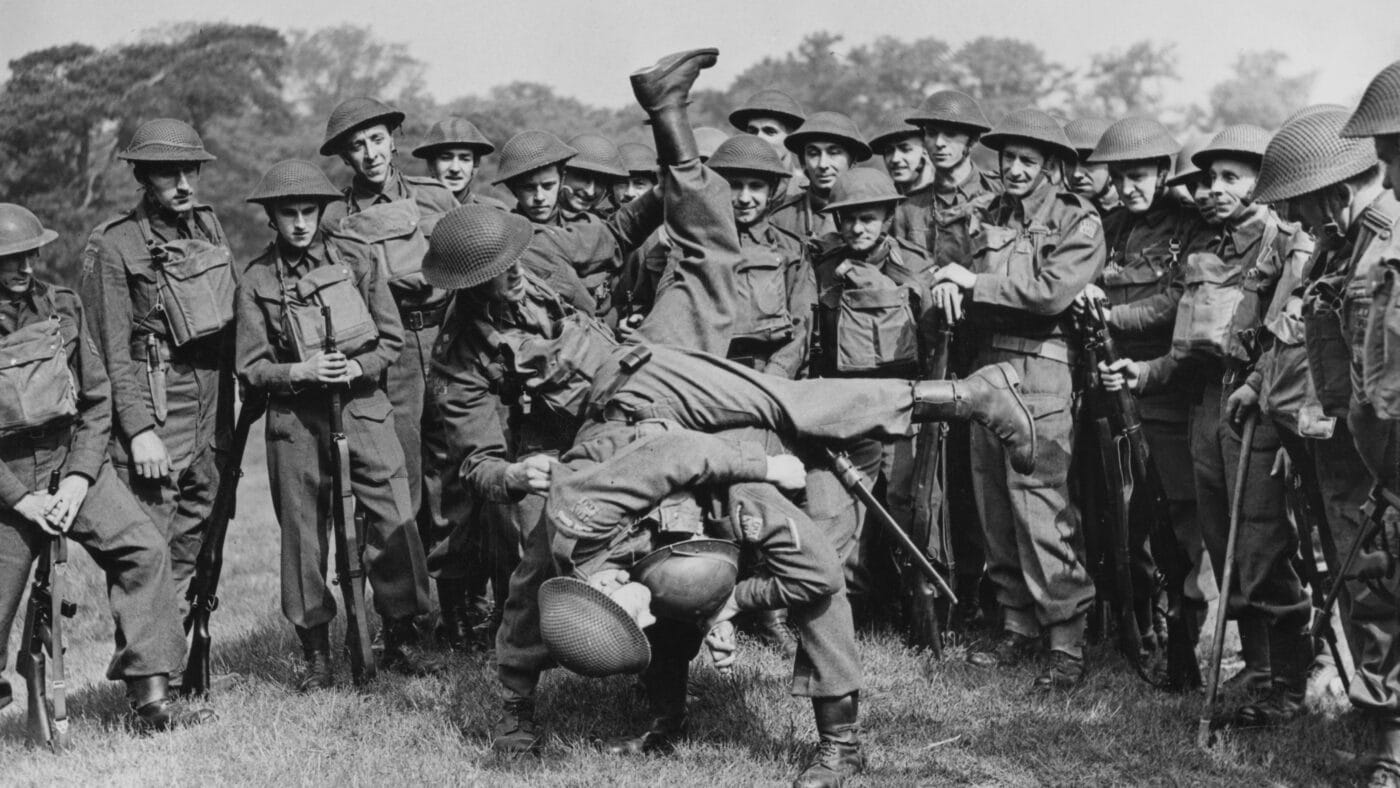There is a considerable social and economic challenge for children adapting to adulthood. The big state – becoming ever more Leviathan – is the prime culprit. The lockdown, imposed in panic, caused particular harm. A miserable listlessness has set in which some have found hard to shake off.
The Conservatives’ proposal of restoring national service as the answer – the state grabbing yet more power – might seem perverse. My libertarian comrade Steve Baker has disowned the proposal, saying: ‘When people are doing no harm, government should leave them to work through their own virtues and vices in voluntary association with other people.’
That would be fine and dandy if the state was not already so heavily engaged in skewing the young on the wrong path. The dice are loaded against work of genuine value and instead are in favour of living off welfare or delaying reality by taking woke university courses.
I would like to see 18-year-olds embark on a bold adventure of independence. To make their own decisions. But that is not the reality we have at present. As soon as they leave school, the seductive but debilitating temptation to be sucked into the dependency culture begins. They become immediately eligible for welfare – with it being all too easy to get a lot more money and a lot less pressure to work by claiming mental illness.
Self-reliance took a great setback with the raising of the school-leaving age. In 1974, Nigel Lawson declared that raising it to 16 was a great mistake. On the resulting increase in truancy and juvenile crime, he said: ‘It is hardly surprising since one effect of the raising of the school leaving age has been to make it illegal for 15-year-olds to take up honest employment.’
Now, with various supposed bureaucratic caveats, the leaving age has been increased by stealth to 18. The enterprising and skilled, but non-academic 16-year-old cannot just go off and get a proper job. They must stay in school or undertake some dreary officially sanctioned training course.
When we had national service under the previous scheme – from 1947 to 1960 – the young men who took part (it was just young men) could get cracking at 17. By then, they might have already been working for three years. Or they could choose to do it a bit later – up to the age of 21.
But why is the state forcing a 17-year-old to stay in school perfectly reasonable but obliging a 17-year-old to do military training is an intolerable attack on individual liberty?
Consider the practical impact of Rishi Sunak’s proposal. All 18-year-olds will be legally required to take up either a 12-month placement in the Armed Forces or cyber defence – or to give up the equivalent of one weekend a month to volunteer in their communities. Many of those who would like the Armed Forces placement might not pass the fitness test. So community service would be the norm. What would be the sanction for those who don’t turn up? Prison has been ruled out – which is sensible.
But I would expect that one sanction would be that those who don’t take part would cease to be eligible for welfare benefits. That would be very positive for their personal motivation and also would be a significant factor when assessing the cost of the programme.
Keir Starmer has ridiculed the idea as ‘Teenage Dad’s Army.’ But some teenagers can see the merit. Among 18-25-year-olds, YouGov found 27% support – a minority, but still rather more than support the Conservatives in that age group. Among the population generally, 47% backed the idea, 45% opposed it.
While Starmer may criticise the policy, David Lammy, the Shadow Foreign Secretary, has previously backed it. In his book Tribes, he backed mandatory non-military service, arguing ‘it would allow us to break down the divides that are entrenched in modern society. Women and men, black or white, poor or rich, from Tottenham or Torquay, would mix as equals.’ Supporting cohesion, rather than the dead end of divisive identity politics is one of the great challenges of our times
Lord Hague, writing in The Times, backed the plan to ‘get millions of young people away from smartphone screens and into purposeful activity.’ He also argued it would strengthen our military potential:
Being able to draw on more individuals who fill those gaps in times of national danger would be an undoubted military asset. The argument that national service takes away military resources is therefore very short-term thinking; in the longer term the potential resources would be greatly enhanced.
So the Labour Party and my fellow libertarians should stop sneering. Amidst what may prove a dull election campaign this policy raises a necessary debate. How do we get the teenagers out of the fug that we have trapped them in? National service might not be the best answer or the only answer. But let’s hear some alternatives from the lazy critics. Sunak’s plan is better than the lethargic status quo.
Click here to subscribe to our daily briefing – the best pieces from CapX and across the web.
CapX depends on the generosity of its readers. If you value what we do, please consider making a donation.


